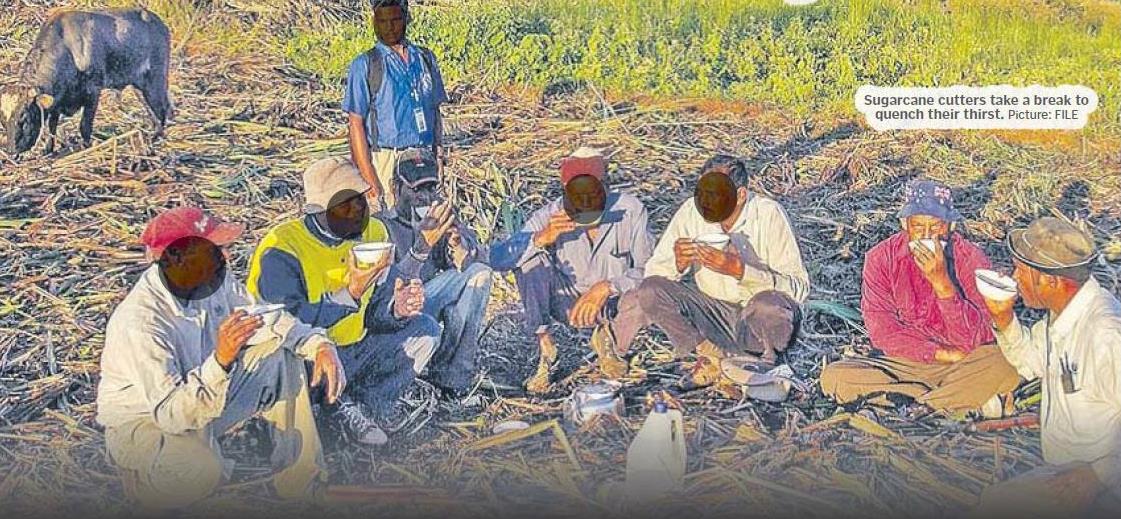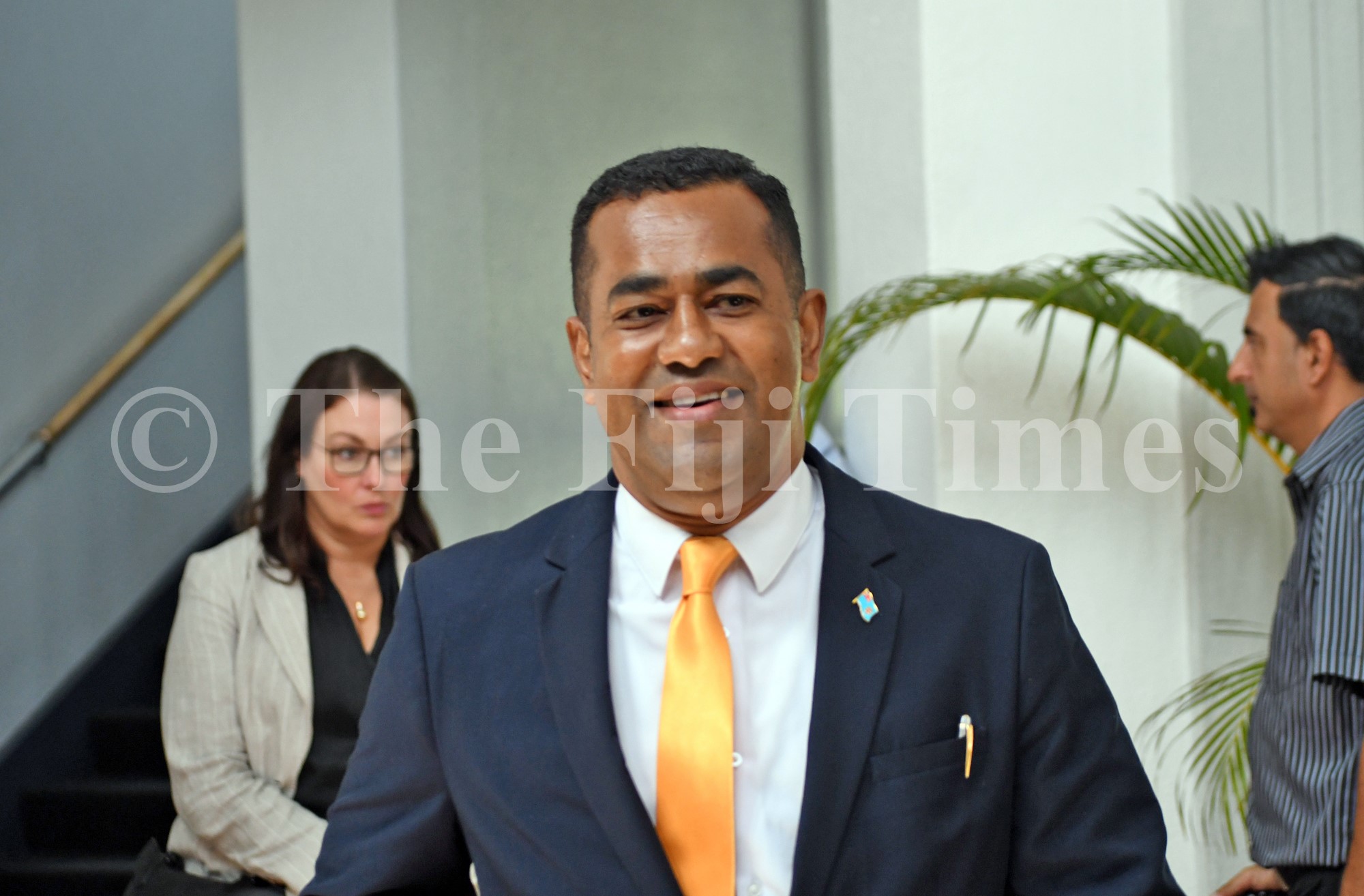In searing heat and sweltering temperatures at Malele, Tavua just after midday on Thursday, April 8, 2021, a group of cane growers decided they have had enough of broken promises, falsehoods, fake assurances and freebies to buy their respect and dignity during general election fever. “We are broken; we are crippled; the Sugar Cane Growers Council (SCGC) and Sugar Cane Growers Fund (SCGF) are toothless and work against us (growers) despite the fact that they should be working for us; we demand SCGC elections”, one said. “We demand at least $20 per tonne of cane as fourth cane payment in May to help us prepare for harvesting and planting new crop; and we will not sit quietly and accept any excuse or refusal of our demands by government because it will mean our demise as growers”. Such was their resolve. In a nutshell, ‘Give us what is ours and stop fooling around because we have had enough’. So, why has it come to this, where defiance and hardened attitudes were on full display?
Imposition
For far too long this government has imposed its will upon growers. Just as it has done on the people of Fiji, both as a regime (Bainimarama administration) and as the Fiji First government since October 6, 2014. Until April 9, 2009, most laws remained largely intact, although there attempts to tinker with them. This was despite Promulgations and Decrees attempting to tinker with laws. The Fiji Court of Appeal in its 55-page judgement on April 9, 2009, while ruling that the military coup of December 5, 2006, was illegal, buried that chapter. Or so it seemed for 18 hours until 10am Friday, April 10, 2009, when the 1997 Constitution was abrogated and Executive Authority of Fiji Decree (now called an Act under the 2013 Constitution), empowered the continuation of the then interim regime for a further five and half years until the general elections in September 2014. But the regime did not hesitate to slash rules regarding the Sugar Cane Growers Council, severely impacting its governance and effectiveness.
Beginning of enslavement
The enslavement of growers began in January 2007 through the infamous Decree No. 1 of the interim regime, which terminated the lawful appointment of the SCGC chief executive Jagannath Sami. He was forced out of office despite obtaining a Stay Order from the High Court at Lautoka. Also ousted was the SCGC chair and eight nominated growers councillors, who were accused of being political appointees of the SDL government. That reduced the size of the SCGC to 38 members – one councillor elected from every sector from Rakiraki to Sigatoka and Labasa to Seaqaqa. Mahendra Chaudhry was appointed Sugar Minister by the then military commander and PM. He was also the regime’s Finance Minister. He was the leader and general secretary of the Fiji Labour Party, which that had formed the multiparty government with Laisenia Qarase’s SDL after the May 2006 elections, only to be deposed in December 2006. But it didn’t stop with the CEO’s termination. The SCGC elections scheduled every three years, were due to be held on April 14, 2007. A Decree was promulgated, deferring the elections by one year to April 30, 2008.
Reforms first, elections later
Come April 30, 2008, no SCGC elections. Almost three months later the interim Cabinet announced that SCGC elections were to be deferred for two more years to allow for smooth implementation of reforms in the sugar industry. So it appeared that the the Sugar Minister and his government believed elections would be an impediment to reforms! The decision not to hold SCGC elections was also highlighted as the correct move by Mr Chaudhry during the presentation of his Report to the Fiji Labour Party’s Annual Delegates Conference in July 2008. He said: “Cabinet has deferred the SCGC elections which were due in April this year to April 2010, to take place after the general elections:” (General elections were initially scheduled for first quarter of 2009). “The deferred elections would also allow current reforms to the harvesting and transportation system to be completed before elections are held,” he said. “Changes to the system are aimed at reducing costs to growers before they are hit with the next lot of cane price reductions in 2009”. “The decision was taken in consultation with industry stakeholders. The view is that nothing should be allowed to disrupt and endanger the prevailing atmosphere of goodwill and cooperation between FSC and
the Growers Council to ensure the smooth implementation of reforms currently under way”. Mr Chaudhry concluded his report by saying: “The people of Fiji deserve better than the deprivation that they have been subjected to in the past twenty odd years
brought on by gross misrule and bad governance. “Fiji has been endowed with fairly substantial resources, a favourable
climate and people with talent and skills. “Once we have fair and equitable policies in place, good governance and a caring administration, we should be able to promote the growth, goodwill and prosperity we all have aspired to for a long time. “Let us ‘put Fiji first’ – the rest will fall in place.”
End to growers’ democracy
In the then Sugar Minister’s belief, deferment of SCGC elections and denying growers their democratic right to choose their
representatives was “putting Fiji First”! Burying democratisation of cane growers means making the largest and most important
stakeholders in the sugar industry voiceless. It has resulted in mounting of problems to the point it has become insurmountable
and is drastically affecting sugarcane production. Cane growing itself is back-breaking. It requires absolute commitment by growers. If they are bogged down by problems, they lose interest. Like any other person engaged in a business or employed either in public or private sector. This has hugely contributed to the decline in the sugar industry over the past 14
years ever since the coup. A cane production of 3.22 million is now struggling to achieve a production of 1.8million tonnes. Sugar production has also declined by about 50 per cent from 310,000 tonnes in 2006. The number of active growers have fallen from over 18,000 in 2006 to less than 12,000 in 2020. A painful portrait indeed of an industry that for over a century was the economic backbone of Fiji and its decimation overseen by an administration that is seemingly clueless on how to salvage it from the doldrums but is hell-bent on still micromanaging it and stifling the voice of growers.
Walk the talk
Tuesday, April 14 marked the 28th anniversary of the death of National Federation Party’s founder member and second leader Siddiq Moidin Koya. Prime Minister Voreqe Bainimarama in his post on social media, praised Mr Koya saying he was “a
leader ahead of his time”. “As a relentless champion of equality for all Fijians, the common citizenship and equal votes of equal value we share today are the culmination of his life of service,” Mr Bainimarama wrote. Very true indeed. The PM must know that as a leader ahead of his time, Mr Koya negotiated in 1984, in a bipartisan manner with then PM Ratu Sir Kamisese Mara, the Sugar Industry Act, which led to the establishment of the Sugar Cane Growers Council as an elected umbrella body of cane growers. After the first SCGC elections in 1985, Mr Koya became the chairman of then 111 member SCGC (three councillors for each of the 37 sectors at that time). The first CEO was also a person of repute – former Speaker of House of Representatives,
a former Attorney General in Ratu Mara’s government, and like Mr Koya a former Legislative Council member, Sir Vijay R Singh. Mr Koya’s vision to have an elected body for growers is in conformity with being a leader ahead of his time, that Mr Bainimarama recognses. In order to ensure that Mr Bainimarama’s tribute is not hollow or an act of political expediency, he should honour Mr Koya’s legacy by telling his Attorney-General to bring a Bill to Parliament as soon as possible to re-instate an elected SCGC in the Sugar Industry Act. Walk your talk Mr Prime Minister.
- KAMAL IYER is a former journalist, and is a senior office administrator of the National Federation Party. The views here are his and not necessarily shared by this newspaper.





